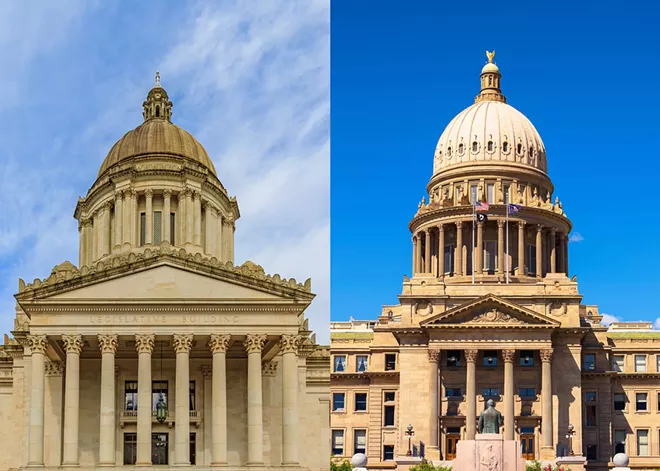Twelve years ago, Washington voters made history by legalizing recreational cannabis. The state was ahead of the game on cannabis legalization — after Washington's 2012 decision, roughly half the nation followed suit — but folks weren't able to start buying it until 2014.
Yet, a decade later, the Legislature is still updating laws to eliminate contradictions caused by cannabis' legal status. For example, one of Washington's newest laws — which took effect on Jan. 1 — prohibits employers from disqualifying job candidates for using cannabis outside the workplace.
Similarly to alcohol though, employers will still be allowed to test an employee for cannabis use if they suspect an employee is under the influence.
If you ask Ira Amstadter, the co-owner of Spokane's Express Employment franchise — a global staff recruitment company — this change came far later for Washington employees than it should have.
"When you look at this new law in Washington, it seems late to the game," he says. "But, you know, the government is known to move pretty slow."
Amstadter has been working to connect employers with prospective candidates in Spokane County for the past three decades. And while he says this law won't have much impact on the company's day-to-day work, he thinks it could free up part of the workforce that was affected by cannabis testing requirements.
"Some jobs will never loosen their marijuana restrictions," he says. "So we'll have to move forward on a case-by-case basis."
This law, however, does not apply unilaterally. Those working in public safety occupations, like law enforcement, firefighters and first responders, or any other job where "impairment while working presents a substantial risk of death," will still be tested.
Federal employees will also be excluded as long as cannabis has yet to receive a nationwide stamp of approval. Recreational cannabis is legal at the state level, but the federal government still considers it as dangerous as drugs like heroin, LSD and ecstasy.
"I'm 70 years old, and I thought we would be done with marijuana as a [Schedule I] drug 20 years ago," Amstadter says.
VOTER REGISTRATION
When one door opens, another closes ... or at least that's how the saying goes for Idaho legislators making decisions on voter registration.
In April 2023, Idaho Gov. Brad Little signed House Bill 340 into state law, which amended existing law by revising and strengthening provisions relating to voter identification and proof of residence. As part of this bill though, the state began offering a four-year, no-fee ID card to registered voters who were 18 years or older and did not have a current driver's license for at least six months prior. These ID cards would otherwise cost between $10 and $15, according to HB 340.
In the same legislative session, state representatives also passed HB 124 — prohibiting student ID cards from being used to register to vote — removing one of the five methods for identification at the polls. Now Idaho's student voters will need to be registered with their state ID card, a passport, a tribal ID card or a concealed carry firearm permit.
This law went into effect at the start of the year, and while this leaves the state of voter registration fairly neutral (one barrier was removed and another was added), it may have a negative impact.
"Any additional barrier when registering to vote will definitely affect voter turnout," says Travis Hagner, a political science professor at North Idaho College.
With an estimated 150,000 voters between the ages of 18 and 29 in Idaho, and an upcoming presidential election, the effects of HB 124 on voter turnout will become clearer at the end of the year.
Some other laws that took effect in the New Year include a new Washington state minimum wage increase to $16.28 per hour (that's more than double the federal minimum of $7.25 per hour), and increased safety protocols when buying a firearm. Washington House Bill 1143, which passed largely along party lines, adds a 10-day waiting period after a federal and state background check before someone can receive a gun they purchased. Under this law, buyers must also provide proof that they've completed firearm safety training in the past five years to be eligible for purchase.
By contrast, to buy a gun in Idaho, you only need an ID card and to pass an instant background check. ♦























